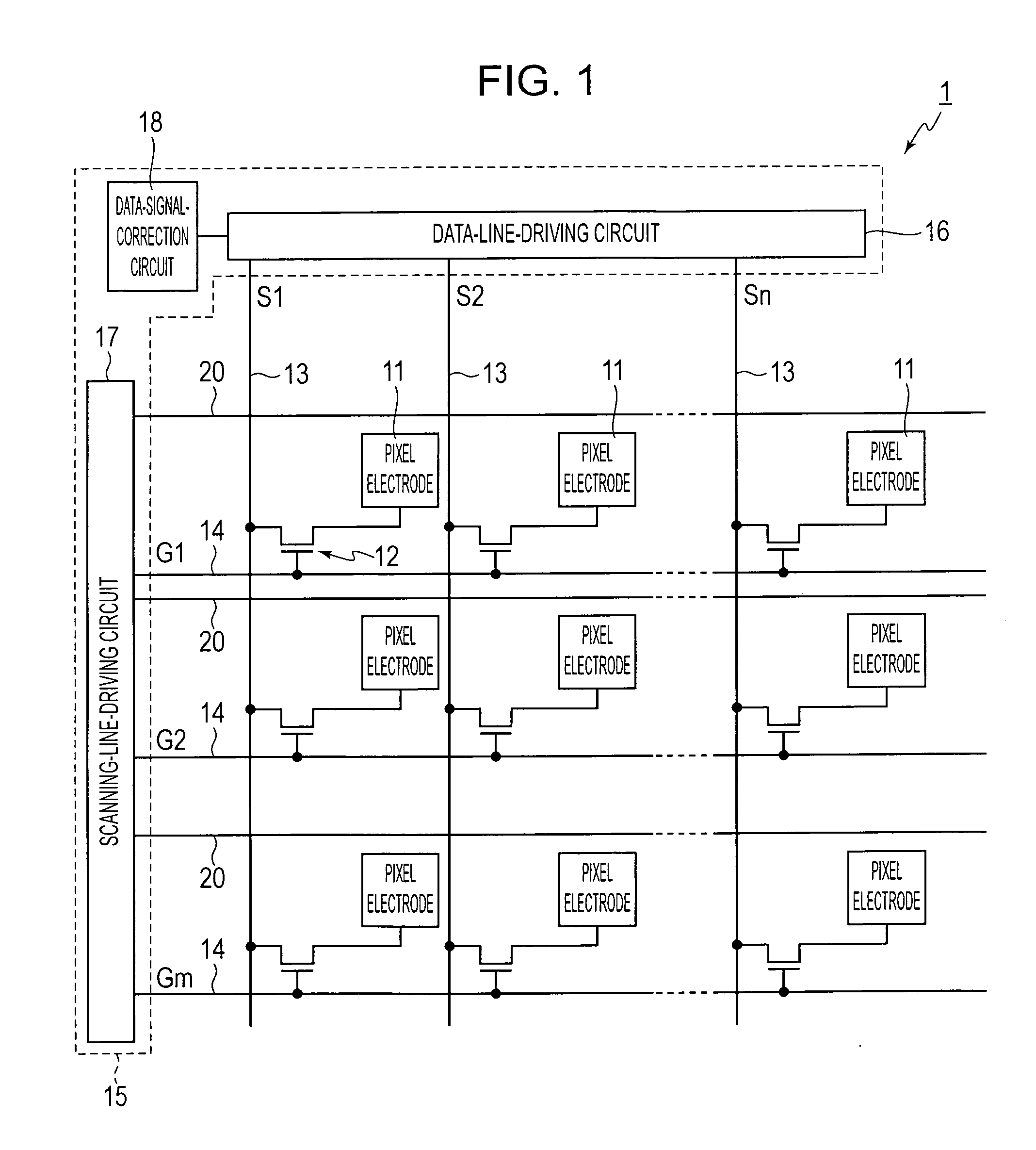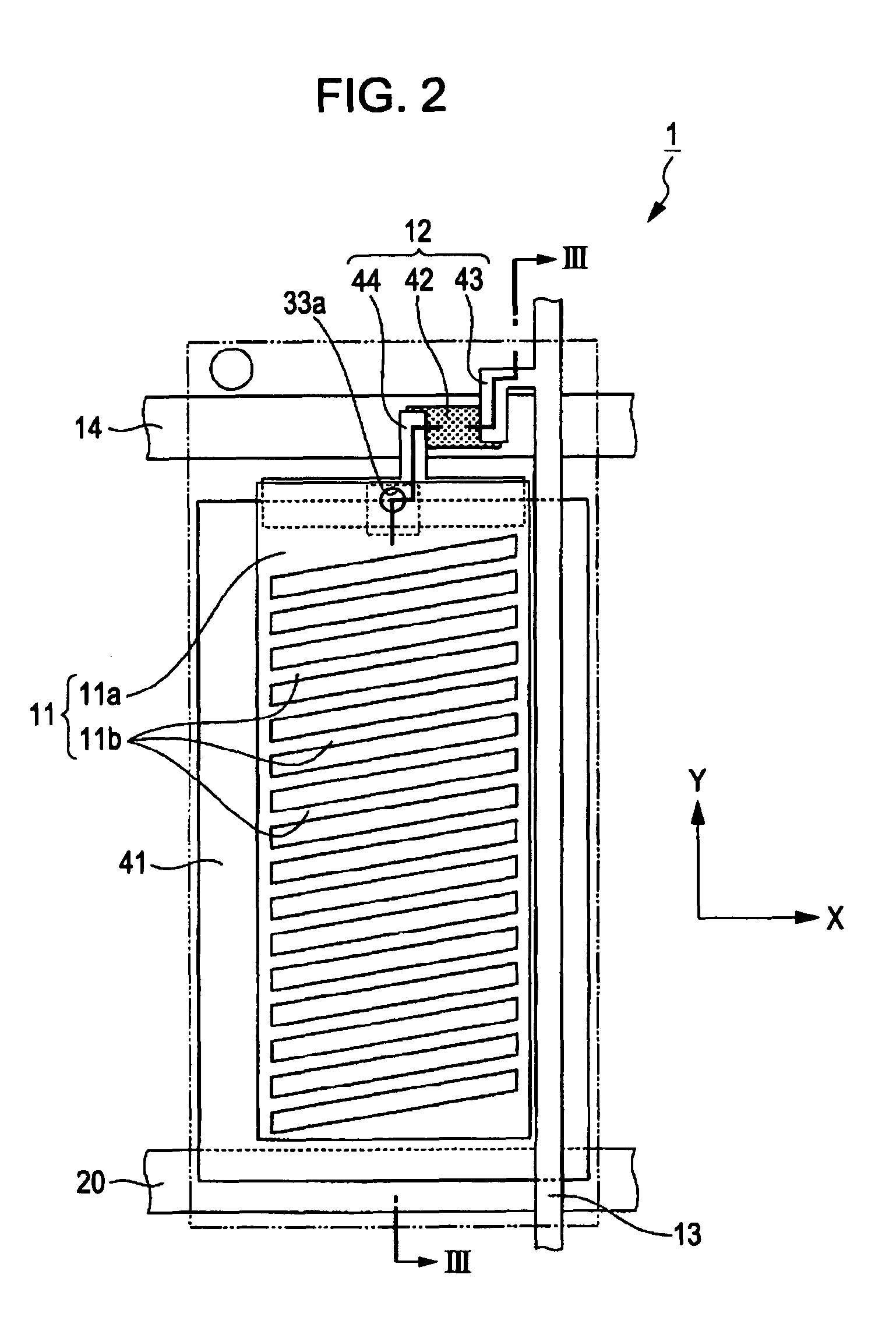Method for driving electro-optic device, electro-optic device, and electronic apparatus
a technology of electrooptic devices and electronic devices, applied in the direction of instruments, computing, electric digital data processing, etc., can solve the problems of image sticking, image sticking, image sticking, etc., to prevent image sticking, improve the performance of electronic devices, and improve display quality
- Summary
- Abstract
- Description
- Claims
- Application Information
AI Technical Summary
Benefits of technology
Problems solved by technology
Method used
Image
Examples
Embodiment Construction
[0036]An embodiment of an electro-optic device according to the invention will be described with reference to the accompanying drawings. In the drawings used in the description below, the scale used for each element is appropriately varied so that the element is of a recognizable size. In the embodiment, a liquid crystal display device using the FFS mode is described as an example of the electro-optic device. FIG. 1 is a diagram showing an equivalent circuit of the liquid crystal display device. FIG. 2 is a partially enlarged structural plan view of a sub-pixel region of the liquid crystal display device. FIG. 3 is a cross-sectional view of the liquid crystal display device shown in FIG. 2, taken along the line III-III. FIG. 4 is a graph showing an optic-axis arrangement of the liquid crystal display device shown in FIG. 2.
[0037]A liquid crystal display device 1 according to the embodiment of the invention is a color liquid crystal display device using t...
PUM
 Login to View More
Login to View More Abstract
Description
Claims
Application Information
 Login to View More
Login to View More - R&D
- Intellectual Property
- Life Sciences
- Materials
- Tech Scout
- Unparalleled Data Quality
- Higher Quality Content
- 60% Fewer Hallucinations
Browse by: Latest US Patents, China's latest patents, Technical Efficacy Thesaurus, Application Domain, Technology Topic, Popular Technical Reports.
© 2025 PatSnap. All rights reserved.Legal|Privacy policy|Modern Slavery Act Transparency Statement|Sitemap|About US| Contact US: help@patsnap.com



